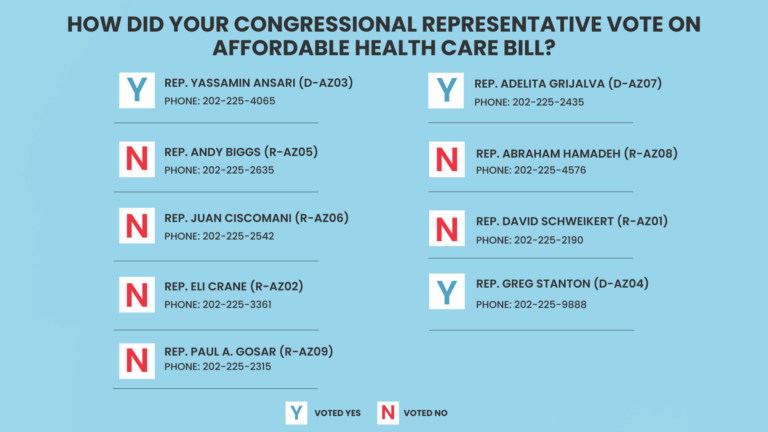
Arizona Ranks 39th In Child Well-Being But Inaccessible, Unaffordable, Child Care Pushes Parents To The Breaking Point.
Arizona ranks 39th in child well-being, according to the 2023 KIDS COUNT® Data Book, a 50-state report of recent household data developed by the Annie E. Casey Foundation analyzing how children and families are faring. However, our country’s lack of affordable and accessible child care short-changes children and causes parents in Arizona to frequently miss work or even quit their jobs, while those who can find care are paying dearly for it. These child care challenges cost the American economy billions of dollars a year and stymie women professionally.
The Data Book reports that too many parents cannot secure child care that is compatible with work schedules and commutes. The Data Book reports that in 2020–21, 16% of Arizona children under 6 had a family member who quit, changed, or refused a job because of problems with child care. And women are five to eight times more likely than men to experience negative employment consequences related to caregiving.
Nationwide, children birth to five of color are disproportionately affected as family members are forced to make job changes because of child care at higher rates: Black children (17%), Latino children (16%), and Asian and Pacific Islander children (14%); compared to the national average of 13% of children.
“Child care is an essential service like health care and education,” said Interim President and CEO of Children’s Action Alliance (CAA), Kelley Murphy. CAA is the Arizona member of the KIDS COUNT network. “That is why it must be affordable and accessible for parents to make a decent living to care for the children, and to build a stronger economy.”
Even if parents can find an opening at child care near their home, they often can’t pay for it. Arizona’s average cost of center-based child care for a toddler was $10,883, 11% of the median income of a married couple, and 31% of a single mother’s income in the state.
While the cost of care burdens families, child care workers are paid worse than 98% of professions. Median national pay for child care workers was $28,520 per year or $13.71 an hour in 2022, less than the wage for retail ($14.26) and customer service ($18.16) workers.
The failings of the child care market also affect the current and future health of the American economy, costing $122 billion a year in lost earnings, productivity and tax revenue, according to one study. All these challenges put parents under tremendous stress to meet the dual responsibilities of providing for their families and ensuring their children are safe and nurtured.
“A good child care system is essential for kids to thrive and our economy to prosper. But our current approach fails kids, parents, and child care workers by every measure,” said Lisa Hamilton, president and CEO of the Annie E. Casey Foundation. “Without safe child care they can afford and get to, working parents face impossible choices, affecting not only their families, but their employers as well.”
Each year, the Data Book ranks the states according to how children are faring, presenting national and state data from 16 indicators in four domains — economic well-being (Arizona ranked 33rd), education (45th), health (32nd), and family and community (40th). Arizona’s overall rank of 39th reflects both some areas of strength and many ways the state can bolster its policies that support child well-being.
Transitioning from a faltering child care system to creating a flourishing one will take new thinking and investing at the local, state, and national levels. An executive order issued by President Biden in April is aimed at expanding access, lowering costs, and raising wages. It could prove to be a helpful framework, but more is needed:
- Federal, state, and local governments should invest more in child care. State and local governments should maximize remaining pandemic recovery act dollars to fund needed child care services and capacity. Congress should reauthorize and strengthen the Child Care and Development Block Grant Act, and increase funding for public pre-kindergarten and Head Start.
- Public and private leaders should work together to improve the infrastructure for home-based child care, beginning by lowering the barriers to entry for potential providers by increasing access to start-up and expansion capital.
- To help young parents, Congress should expand the federal Child Care Access Means Parents in School (CCAMPIS) program, which serves student parents.



